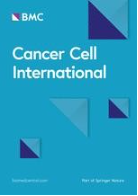
소아 유전질환 페닐케톤뇨증(PKU) 유전자교정 및 ex vivo 세포치료기술 개발
연구책임자: 한국원자력의학연구원 정재민 박사
Background
Artificial intelligence (AI) is capable of integrating a large amount of related information to predict therapeutic relationships such as disease treatment with known drugs, gene expression, and drug-target binding.
AI has gained increasing attention as a promising tool for next-generation drug development.
Methods
An AI method was used for drug repurposing and target identification for cancer.
Among 8 survived candidates after background checking, N-(1-propyl-1H-1,3-benzodiazol-2-yl)-3-(pyrrolidine-1-sulfonyl) benzamide (Z29077885) was newly selected as an new anti-cancer drug, and the anti-cancer efficacy of Z29077885 was confirmed using cell viability, western blot, cell cycle, apoptosis assay in MDA-MB 231 and A549 in vitro.
Then, anti-tumor efficacy of Z29077885 was validated in an in vivo A549 xenograft in BALB/c nude mice.
Results
First, we discovered an antiviral agent, Z29077885, as a new anticancer drug candidate using the AI deep learning method.
Next, we demonstrated that Z29077885 inhibits Serine/threonine kinase 33 (STK33) enzymatic function in vitro and showed the anticancer efficacy in various cancer cells.
Then, we found enhanced apoptosis via S-phase cell cycle arrest as the mechanism underlying the anticancer efficacy of Z29077885 in both lung and breast cancer cells.
Finally, we confirmed the anti-tumor efficacy of Z29077885 in an in vivo A549 xenograft.
Conclusions
In this study, we used an AI-driven screening strategy to find a novel anticancer medication targeting STK33 that triggers cancer cell apoptosis and cell cycle arrest at the s phase.
It will pave a way to efficiently discover new anticancer drugs.
Cancer Cell International (2023)
https://cancerci.biomedcentral.com/articles/10.1186/s12935-023-03176-2












